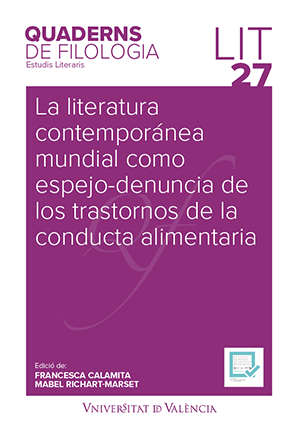"You are rejecting your femininity!": Margaret Atwood's The Edible Woman and the female relationship to food
DOI:
https://doi.org/10.7203/qdfed.27.25745Keywords:
Margaret Atwood, absent referent, animal studies, eating disorder Abstract
Abstract
The Canadian author Margaret Atwood has often employed her female characters and their relationship with food as a means through which to condemn what women suffer. Nonetheless, it was in her first novel The Edible Woman (1969) in which she took this idea to the extreme and used the eating disorder that the protagonist suffers, beginning with anorexia and ending with a type of cannibalism as she is incapable of consuming food, to denounce the social pressure and loss of identity that women endure. In this article I argue that the rejection the protagonist feels towards food, especially that which derives from living animals, can be studied from the perspective of animal studies and Carol J. Adams concept of the absent referent (1990).
 Downloads
Downloads
Downloads
Published
How to Cite
-
Abstract760
-
PDF (Español)762
Issue
Section
License
 Este obra está bajo una licencia de Creative Commons Reconocimiento-NoComercial-SinObraDerivada 4.0 Internacional.
Este obra está bajo una licencia de Creative Commons Reconocimiento-NoComercial-SinObraDerivada 4.0 Internacional.
Authors who publish with this journal agree to the following terms:
- Authors retain copyright and grant the journal right of first publication with the work simultaneously licensed under a Creative Commons Attribution License that allows others to share the work with an acknowledgement of the work's authorship and initial publication in this journal.
- Authors are able to enter into separate, additional contractual arrangements for the non-exclusive distribution of the journal's published version of the work (e.g., post it to an institutional repository or publish it in a book), with an acknowledgement of its initial publication in this journal.
- Authors are permitted and encouraged to post their work online (e.g., in institutional repositories or on their website) prior to and during the submission process, as it can lead to productive exchanges, as well as earlier and greater citation of published work (See The Effect of Open Access).



